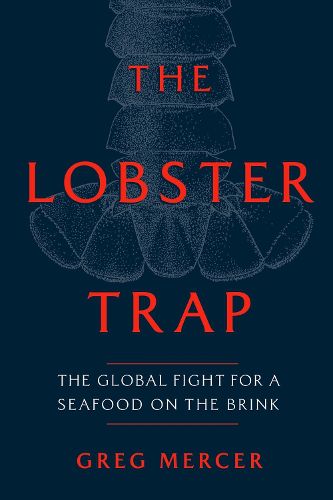Readings Newsletter
Become a Readings Member to make your shopping experience even easier.
Sign in or sign up for free!
You’re not far away from qualifying for FREE standard shipping within Australia
You’ve qualified for FREE standard shipping within Australia
The cart is loading…






A page-turning examination of how a multi-billion dollar industry creates enormous wealth and endless heartache, at a time when climate change, swings in the market, and greed are impacting fishermen's livelihoods in new and dramatic ways.
A page-turning examination of how a multi-billion dollar industry creates enormous wealth and endless heartache, at a time when climate change, swings in the market, and greed are impacting fishermen's livelihoods in new and dramatic ways.
Lobster has been a phenomenal success story, with a commercial fishery that has generated enormous wealth and fuelled appetites for one of the world's most recognizable luxury foods. The great lobster boom that began in the 1990s has also led to violent fights over who has the right to catch this valuable seafood, including many Indigenous people in Canada, who until recently have been excluded from this industry. Now overfishing, trade wars, and climate change are threatening the future of this fishery in deeply troubling ways.
By 2050, scientists expect that warming ocean waters in the heart of North America's lobster fishing region will cut catches by two thirds. In some parts of America, there's hardly any lobster left to catch. Unlike previous collapses, there are few other large-scale wild seafood species left that fishing crews can switch to. The economic upheaval for fishermen and seafood companies alike could devastate coastal communities in both Canada and the United States.
In this deeply reported, resonant, timely book, Greg Mercer takes readers on a fascinating global journey and inside this precarious moment for the lobster industry, to show the money and heartache, and the danger and violence, tied up in it. Along the way, he explores lobster's remarkable history, the gold-rush mentality that surrounds it, and examines the looming crisis for this most precious shellfish.
$9.00 standard shipping within Australia
FREE standard shipping within Australia for orders over $100.00
Express & International shipping calculated at checkout
Stock availability can be subject to change without notice. We recommend calling the shop or contacting our online team to check availability of low stock items. Please see our Shopping Online page for more details.
A page-turning examination of how a multi-billion dollar industry creates enormous wealth and endless heartache, at a time when climate change, swings in the market, and greed are impacting fishermen's livelihoods in new and dramatic ways.
A page-turning examination of how a multi-billion dollar industry creates enormous wealth and endless heartache, at a time when climate change, swings in the market, and greed are impacting fishermen's livelihoods in new and dramatic ways.
Lobster has been a phenomenal success story, with a commercial fishery that has generated enormous wealth and fuelled appetites for one of the world's most recognizable luxury foods. The great lobster boom that began in the 1990s has also led to violent fights over who has the right to catch this valuable seafood, including many Indigenous people in Canada, who until recently have been excluded from this industry. Now overfishing, trade wars, and climate change are threatening the future of this fishery in deeply troubling ways.
By 2050, scientists expect that warming ocean waters in the heart of North America's lobster fishing region will cut catches by two thirds. In some parts of America, there's hardly any lobster left to catch. Unlike previous collapses, there are few other large-scale wild seafood species left that fishing crews can switch to. The economic upheaval for fishermen and seafood companies alike could devastate coastal communities in both Canada and the United States.
In this deeply reported, resonant, timely book, Greg Mercer takes readers on a fascinating global journey and inside this precarious moment for the lobster industry, to show the money and heartache, and the danger and violence, tied up in it. Along the way, he explores lobster's remarkable history, the gold-rush mentality that surrounds it, and examines the looming crisis for this most precious shellfish.